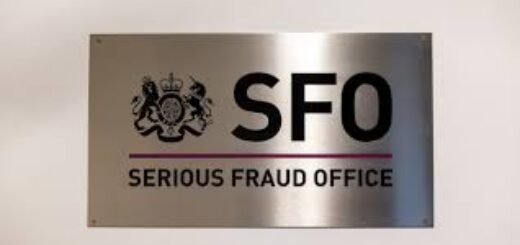Sifting Through the Ukraine Economic Sanctions
 It is odd how a foreign crisis can have a dramatic impact on the world of ethics and compliance. Foreign policy headaches turn into compliance nightmares when the United States becomes embroiled in foreign events.
It is odd how a foreign crisis can have a dramatic impact on the world of ethics and compliance. Foreign policy headaches turn into compliance nightmares when the United States becomes embroiled in foreign events.
For years, under the Obama Administration, sanctions have become the weapon of choice in foreign crises. Congress and the Treasury Department’s Office of Foreign Asset Control (“OFAC”) are players in this drama.
Foreign countries can quickly turn from friend to enemy or vice versa. Foreign trade compliance is a thicket of regulations, overlapping jurisdictions, and detailed regulatory requirements. Even with the Obama Administration’s laudatory efforts to reform export controls and bring some semblance of normalcy to the process, all of this is jettisoned when a new foreign crisis hits the government.
The Russian-Ukraine dispute has become a compliance nightmare for many. Sanctions compliance is difficult but add on to that the need to coordinate with Anti-Money Laundering controls.
Russia’s actions in Crimea resulted in three executive orders issued by the Obama Administration, and the addition of names to the list of Specially Designated Nationals and Blocked persons list (“SDN”). The executive orders prohibit all US persons and entities from dealing with the SDNs and block all SDN assets.
The first two executive orders covered around 33 individuals and two entities linked to the Ukraine crisis, including 23 government officials who are high-ranking executive branch officials, legislators, presidential aides and the chairman of Russian Railways. Four Russian businessmen with close ties to President Putin were also named. Bank Rossiya, which is connected to one of the businessmen, was also designated for the SDN list.
The third executive order, which so far has not been implemented, authorizes the imposition of sanctions against individuals associated with key Russian industries – it is the nuclear bomb of Russian sanctions and could have a huge impact on the Russian (and even the US) economy.
The Treasury Department has issued two advisories warning financial institutions of money laundering risks relating to the Ukraine crisis. Specifically, financial institutions were warned about private banking accounts held by senior political figures and the increased risk of misappropriated or diverted state funds, proceeds of bribery or other illegal payments.
 Congress also acted by adopting the Support for Sovereignty, integrity, Democracy and Economic Stability of Ukraine Act which authorizes the President to impose sanctions and freeze assets against eprsons responsible for human rights abuses in Ukraine or who undermined the peace, security and stability of Ukraine.
Congress also acted by adopting the Support for Sovereignty, integrity, Democracy and Economic Stability of Ukraine Act which authorizes the President to impose sanctions and freeze assets against eprsons responsible for human rights abuses in Ukraine or who undermined the peace, security and stability of Ukraine.
Congress’ Act overlaps with the existing sanctions but includes a new and important feature: the Act targets corruption by Russian officials, authorizing sanctions against Russian government officials, close associates and family members responsible for controlling or directing “significant acts of corruption” in Russian or the Ukraine.
Companies who have business operations in Russia and/or the Ukraine have to exercise caution, and conduct detailed screenings of customers, investors, third parties, and other counterparties for compliance with the Ukraine sanctions.
A US company cannot possess or control a property interest connected to an SDN. Such property has to be identified, blocked and reported to the government. In addition to existing property interests, companies cannot engage new customers or enter new investments that would violate the sanctions.
In applying the sanctions there are two significant clarifications – the sanctions do not apply to foreign subsidiaries of US companies, and entities subject to the sanctions have to possess a controlling or greater than 50 percent ownership interest. Nonetheless it is important to review carefully any interest under 50 percent in a prohibited entity in order ensure that the prohibited person or entity does not exercise control.
US persons and US entities cannot have any dealings with SDNs or facilitate a non-US person or entity dealings with SDNs. Even if the sanctions do not apply, companies need to ensure that they comply with AML requirements for due diligence and monitoring of financial transactions.















